Cushing Syndrome
Cushing syndrome happens when the body has too much of the hormone cortisol over time. This may result from taking oral corticosteroid medication, or the body might produce a high level of cortisol.
Too much cortisol may cause some of the hallmark signs of Cushing syndrome — a fatty hump between the shoulders, a rounded face, and pink or purple stretch marks on the skin. Cushing syndrome may also outcome in high blood pressure, bone loss, and, on occasion, type 2 diabetes.
Treatments for Cushing syndrome may return the body’s cortisol levels to normal and improve the symptoms. The earlier treatment starts, the better the chances for recovery.
Table of Contents
Epidemiology
The incidence and prevalence of Cushing syndrome are unknown. The prevalence of the disease is highly variable around the different ethnic and cultural groups based on the frequency and spectrum of the medical conditions requiring steroid-based therapy.
Of the known cases
- Iatrogenic hypercortisolism outweighs the endogenous causes,
Of the endogenous cases
- Pituitary-mediated ACTH production accounts for up to eighty percent of cases of hypercortisolism, followed by adrenals, unknown sources, and ectopic ACTH production secondary to malignancies.
Cushing syndrome symptoms
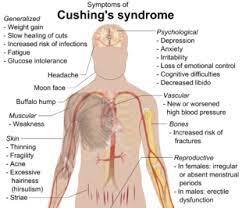
The most usual symptoms of this condition are:
- Weight gain
- Fatty deposits, specifically in the midsection, the face (causing a round, moon-shaped face), and between the shoulders and the upper back (sometimes causing a visual hump)
- Purple color stretch marks on the breasts, arms, abdomen, and thighs
- Thinning skin that bruises easily
- Skin injuries that are slow to heal
- Acne
- fatigue
- Muscle weakness
In addition to the common symptoms above, there are other symptoms that can sometimes be observed in individuals with Cushing syndrome.
These may involve:
- High blood sugar
- Increased thirst
- Increased urination
- High blood pressure (hypertension)
- A headache
- Mood swings
- Anxiety
- Irritability
- Depression
- Increased number of infections
- Irregular menstrual periods
Cushing syndrome in children
Babies can have Cushing syndrome, too, although they develop it less frequently than adults. According to a past review, about 10 % of new Cushing syndrome cases each year happen in children. In addition, to the symptoms above, children with Cushing syndrome can also have:
- Obesity
- The slower rate of growth
- High blood pressure (hypertension)
Cushing syndrome in women
Cushing syndrome is more usual in females than in males. According to the National Institutes of Health (NIH), 3 times as many females develop Cushing syndrome as compared males. Women with Cushing syndrome can also generate extra facial and body hair. This most frequently happens on the:
- Face and neck
- Chest
- Abdomen
- Thighs
- In addition, females with Cushing syndrome can also feel irregular menstruation.
- In some cases, menstruation is absent altogether. Untreated Cushing syndrome in females may lead to difficulties becoming pregnant.
Cushing syndrome in men
As is the case with females and children, males with Cushing syndrome can also feel additional symptoms. Males with Cushing syndrome can have:
- Erectile dysfunction
- A loss of sexual interest
- Decreased fertility
Cushing syndrome causes
Cushing syndrome is the cause of an excess of the hormone cortisol. The adrenal glands produce cortisol. Cortisol helps with a number of the body’s functions, involving:
- Regulating blood pressure and the cardiovascular system
- Decreasing the immune system’s inflammatory response
- Converting carbohydrates, fats, and proteins into energy
- Balancing the effects of insulin
- Responding to stress
The body can generate high levels of cortisol for a variety of reasons, involving:
- High-stress levels, including stress related to an acute illness, surgery, injury, or pregnancy, specifically in the final trimester
- Athletic training
- Malnutrition
- Alcoholism
- Emotional stress such as Depression, panic disorders
Corticosteroids
- The most usual cause of Cushing syndrome is the use of corticosteroid medications, namely prednisone, in high doses for a long period.
- A doctor may prescribe these to treat inflammatory diseases, like lupus, or to prevent the rejection of a transplanted organ.
- High doses of injectable steroids for the t treatment of back pain may also cause Cushing syndrome.
- Although, lower dose steroids in the form of inhalants, like those used for asthma, or creams, like those prescribed for eczema, generally are not enough to cause the condition.
- The one caveat is long-term topical steroid use in children.
- This longtime use has been associated with Cushing syndrome.
Tumors
- Several kinds of tumors may also lead to a higher production of cortisol.
- Some of these include:
Pituitary gland tumors
- The pituitary gland releases an adrenocorticotropic hormone in very great amounts (ACTH), which stimulates cortisol production in the adrenal glands.
- This is known as Cushing’s disease.
Ectopic tumors
- These are tumors outer side of the pituitary that produce ACTH.
- They generally happen in the lung, pancreas, thyroid, or thymus gland.
Adrenal gland abnormality or tumor
- An adrenal abnormality or tumor may lead to irregular patterns of cortisol production, which may cause Cushing syndrome.
Familial Cushing syndrome
- Although Cushing syndrome is not typically inherited, it is possible to have an inherited tendency to develop tumors of the endocrine glands.
Cushing syndrome vs. Cushing disease
- If Cushing syndrome is caused by the pituitary gland overproducing ACTH which in turn becomes cortisol, it is known as Cushing’s disease.
- As with Cushing syndrome, Cushing disease affects more females than males.
Risk factors
- The main risk factor for progressing Cushing syndrome is taking high-dose corticosteroids over a prolonged period of time.
- If the doctor has recommended corticosteroids to treat a health condition, ask them about the dosage and how long you’ll be taking them.
Other risk factors may involve:
- Being labeled female at birth
- The age
- Living with pituitary or adrenal tumors
- Some cases of Cushing syndrome are because of tumor formation. Although there may be a genetic predisposition to develop endocrine tumors (familial Cushing syndrome), there is no way to prevent tumors from forming.
Diagnosis
- Cushing syndrome may be specifically difficult to diagnose.
- This is because many of the symptoms, like weight gain or fatigue, may have other causes.
- Additionally, Cushing syndrome itself may have many different causes.
- A doctor will review the medical history.
- They will ask questions about symptoms, any health conditions a person can have, and any medications people are taking.
- They will also perform a physical exam where they will look for signs like a bump between the shoulders, stretch marks, and bruises.
Other tests
24-hour urinary free cortisol test:
- For this test, a patient will be asked to collect urine over a 24-hour period.
- The levels of cortisol will then be checked.
Salivary cortisol measurement:
- In patients without Cushing syndrome, cortisol levels decrease in the evening.
- This test measures the level of cortisol in a saliva sample that is been collected late at night to see if cortisol levels are too high.
Low-dose dexamethasone suppression test:
- For this test, a person will be given a dose of dexamethasone late in the evening.
- The blood will be tested for cortisol levels in the morning.
- Normally, dexamethasone causes cortisol levels to drop.
- If a person has Cushing syndrome, this won’t happen.
Dexamethasone–CRH test:
- High cortisol levels can take place for different reasons, from consuming too much alcohol to living with depression or anxiety.
- This test, which involves a shot of the hormone CRH and a dose of dexamethasone, may help a doctor note if high cortisol levels are because of Cushing syndrome, or another issue.
- If a person does not already have an endocrinologist, a person may browse doctors in the area through the Healthline FindCare tool.
Diagnosing the cause of Cushing syndrome
- After a person receives the diagnosis of Cushing syndrome, the doctor must still identify the cause of the excess cortisol production.
Tests to help determine the cause can involve:
Blood adrenocorticotropin hormone (ACTH) test:
- Levels of ACTH in the blood are measured.
- Low levels of ACTH and high levels of cortisol could impact the presence of a tumor in the adrenal glands.
Corticotropin-releasing hormone (CRH) stimulation test:
- In this test, people are given a shot at CRH.
- This will increase levels of ACTH and cortisol in individuals with pituitary tumors.
High-dose dexamethasone suppression test:
- This is the like as the low-dose test, except that a higher dose of dexamethasone is utilized.
- If cortisol levels decline, a person can have a pituitary tumor.
- Higher levels of cortisol may point to an adrenal tumor or ectopic tumor.
Petrosal sinus sampling:
- Blood is drawn from a vein around the pituitary and from a vein far from the pituitary.
- A shot of CRH is given, and if ACTH increases in the blood around the pituitary, it may indicate a pituitary tumor.
- The same levels from both samples diagnose an ectopic tumor.
Imaging studies:
- These may involve things like CT and MRI scans.
- They are utilized to visualize the adrenal and pituitary glands to look for tumors.
Cushing syndrome treatment
- The overall aim of Cushing syndrome treatment is to lower the levels of cortisol in the body.
- This may be accomplished in several ways. The treatment that a person receives will depend on what is causing the condition.
- The doctor can prescribe medication to help manage cortisol levels.
- Some medications reduce cortisol production in the adrenal glands or reduce ACTH production in the pituitary gland.
- Other medications block the effect of cortisol on the tissues.
Examples involve:
- ketoconazole (Nizoral)
- mitotane (Lysodren)
- metyrapone (Metopirone)
- pasireotide (Signifor)
- mifepristone (Korlym, Mifeprex) in those with type two diabetes or glucose intolerance.
- If a person uses corticosteroids, a change in medication or dosage can be necessary.
- Do not attempt to change the dosage themselves.
- A person should do this under close medical supervision.
Pituitary tumors
- The most usual type of treatment for pituitary tumors is surgery.
- The doctors will go in through a nostril or an opening made below the upper lip to remove the tumor.
- When done correctly, this surgery has a ninety percent success rate.
- After the surgery, the body won’t make enough ACTH initially, so a person will likely be prescribed cortisol medication for months to years.
- If surgery is not possible, radiation therapy can be an option.
Ectopic ACTH-producing tumors
- Like pituitary tumors, surgery is typically the 1st option for ectopic tumors.
- If surgery does not successfully work or is not an option, chemotherapy, radiation, and other cancer treatments can be able to help shrink the tumor.
- Medications to decrease cortisol levels can also be part of the treatment plan.
- One of the rare and last treatment options is the removal of the adrenal glands.
Adrenal tumors
- Surgery to remove the adrenal gland with the tumor is the 1st line of treatment for adrenal tumors.
- In severe cases, it is possible that both adrenal glands will have to be removed.
- In this instance, a person can require to take medication for life to replace the hormones that adrenal glands generate, involving cortisol.
Natural treatments for Cushing syndrome
Although particular lifestyle changes like focusing on the diet won’t cure the condition, they can help to keep the cortisol levels from increasing even more or help to prevent complications. Lifestyle tips for those with Cushing syndrome involve
Lose weight if recommended
- Since weight gain is one of the most important symptoms of Cushing syndrome, if the doctor has suggested a patient lose weight, consider working with a nutritionist and improving the physical activity in order to get the weight to an optimal level.
Try to avoid drinking alcohol
- Because heavy alcohol use may bring on signs and symptoms of Cushing, the doctor can suggest a person stop drinking.
Manage the blood sugar
- Cushing syndrome may lead to high blood glucose, so try to limit foods that may cause an increment in blood sugar.
- Examples of foods to focus on eating involve vegetables, fruits, whole grains, and fish.
Cut back on sodium
- Cushing syndrome is also connected with high blood pressure (hypertension).
- Because of this, the doctor can suggest a person limit the sodium intake.
- This may simply entail not adding salt to food and carefully reading food labels to check the sodium content.
Make sure to get enough calcium and vitamin D
- Cushing syndrome may weaken the bones, making a person prone to fractures.
- Both calcium and vitamin D may help to strengthen the bones.
Complications of Cushing syndrome
If a person has Cushing syndrome, it is necessary that it is perfectly managed. If an individual does not get treatment for it, Cushing syndrome can lead to different types of potentially serious health complications.
These may involve:
- Osteoporosis, which may reduce the risk of bone fractures
- Muscle loss (atrophy) and weakness
- High blood pressure (hypertension)
- Type 2 diabetes
- Frequent infections
- Heart attack or stroke
- Depression or anxiety
- Cognitive difficulties, namely trouble concentrating or problems with memory
- Enlargement of an existing tumor.
Physical Therapy Treatment
Physiotherapists are more likely to treat individuals who have developed medication-induced Cushing’s syndrome. Exogenous steroids are prescribed for a number of inflammatory and other disorders eg asthma or rheumatoid arthritis.
Educate Clients with regard to:
- Doing exercise on a daily base to helps maintain muscles and bone mass and prevent weight gain.
- To maintain muscle and bone mass, weight-bearing exercises namely push-ups, sit-ups, or lifting weights are helpful.
- To prevent weight gain, aerobic exercise is perfect. Namely fast walking, jogging, cycling, and swimming.
- Education on how to avoid falls and remove loose rugs and other hazards in the home.
- Falling can lead to broken bones and other injuries.
- Pay close attention to all wounds.
- Too much cortisol reduces the wound healing time.
- Education on better wound healing and cleansing is necessary.
- Clean all wounds as early as possible with antibacterial soap and use antibiotic ointment and dressings to prevent infection.
FAQ
The Cushing disease takes place when a benign tumor in the pituitary gland causes the pituitary gland to produce too much amount of ACTH, the hormone responsible for cortisol production. Too much adrenocorticotropin in the body causes the adrenal glands to generate cortisol at high levels.
Cushing’s syndrome occurs when a person has too many corticosteroids in their body. When the disorder frequently begins with the pituitary gland, the condition is known as Cushing’s syndrome. The gland generates too much adrenocorticotropin hormone (ACTH). That causes the adrenal glands to produce too many corticosteroids.
Cushing’s syndrome occurs when a person has too many corticosteroids in their body. When the disorder frequently begins with the pituitary gland, the condition is known as Cushing’s syndrome. The gland generates too much adrenocorticotropin hormone (ACTH). That causes the adrenal glands to produce too many corticosteroids.
Cushing disease can be caused by overuse of corticosteroids, like prednisone, or maybe because of an underlying condition, like an adrenal tumor, lung tumor, or pituitary tumor. Chronic stress and poor stress management may cause Cushing disease, as cortisol is the hormone we produce when we are stressed.
Nodular hyperplasia (overgrowth) of both adrenal glands is an infrequent cause of cortisol excess. Weight gain — Progressive weight gain is the most usual symptom of Cushing’s syndrome. This weight gain generally affects the face, neck, trunk, and abdomen more than the limbs, which can be thin.

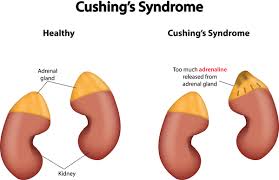
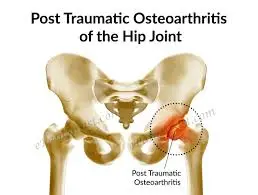
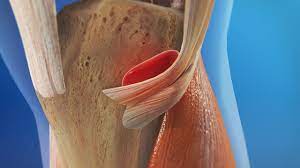
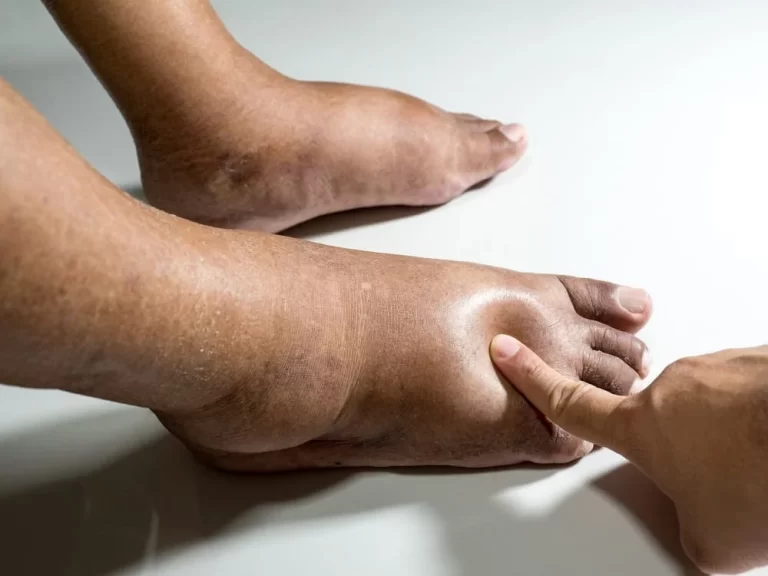



3 Comments